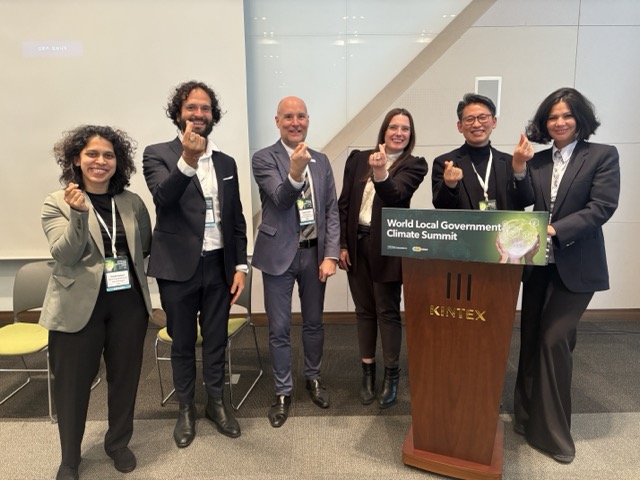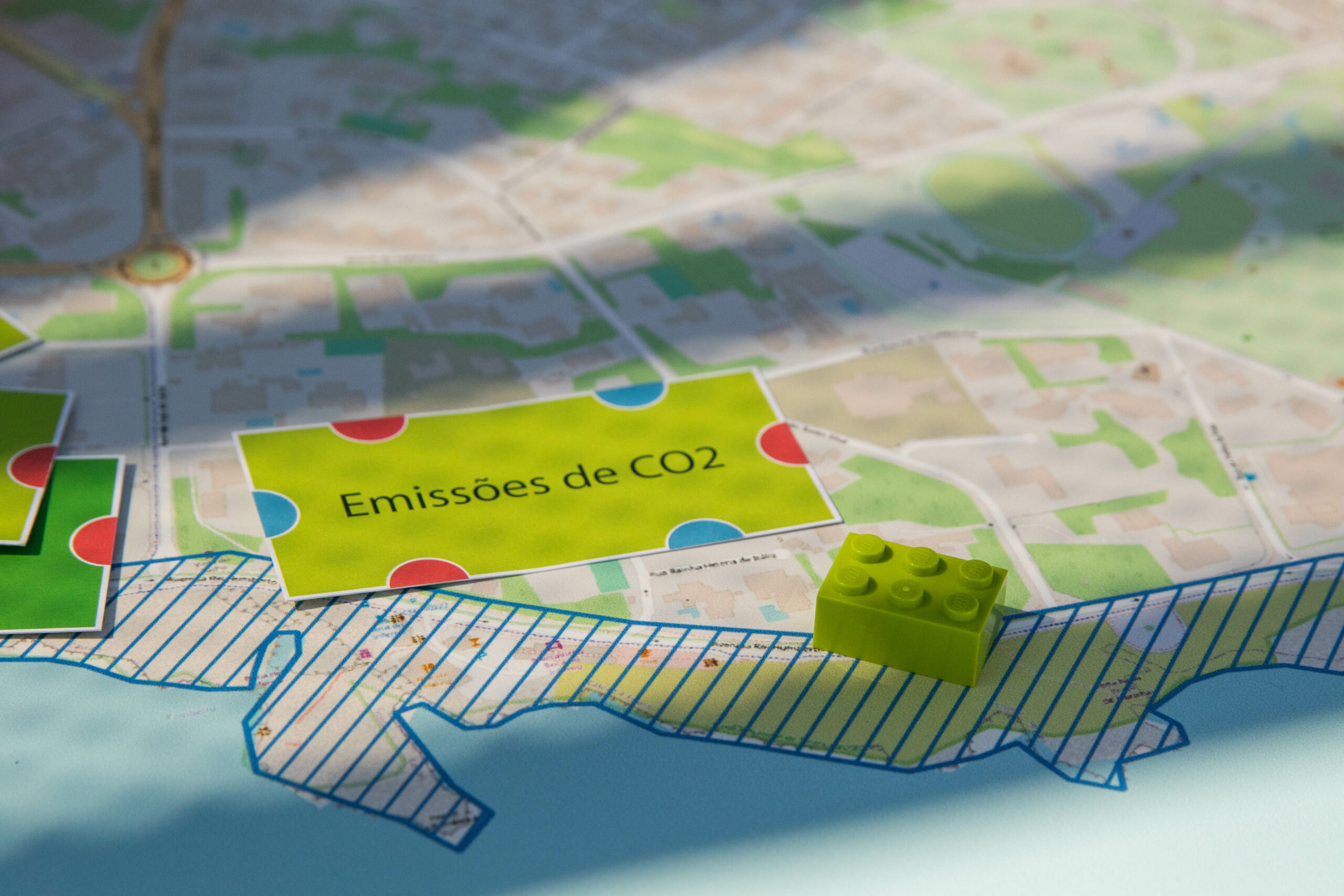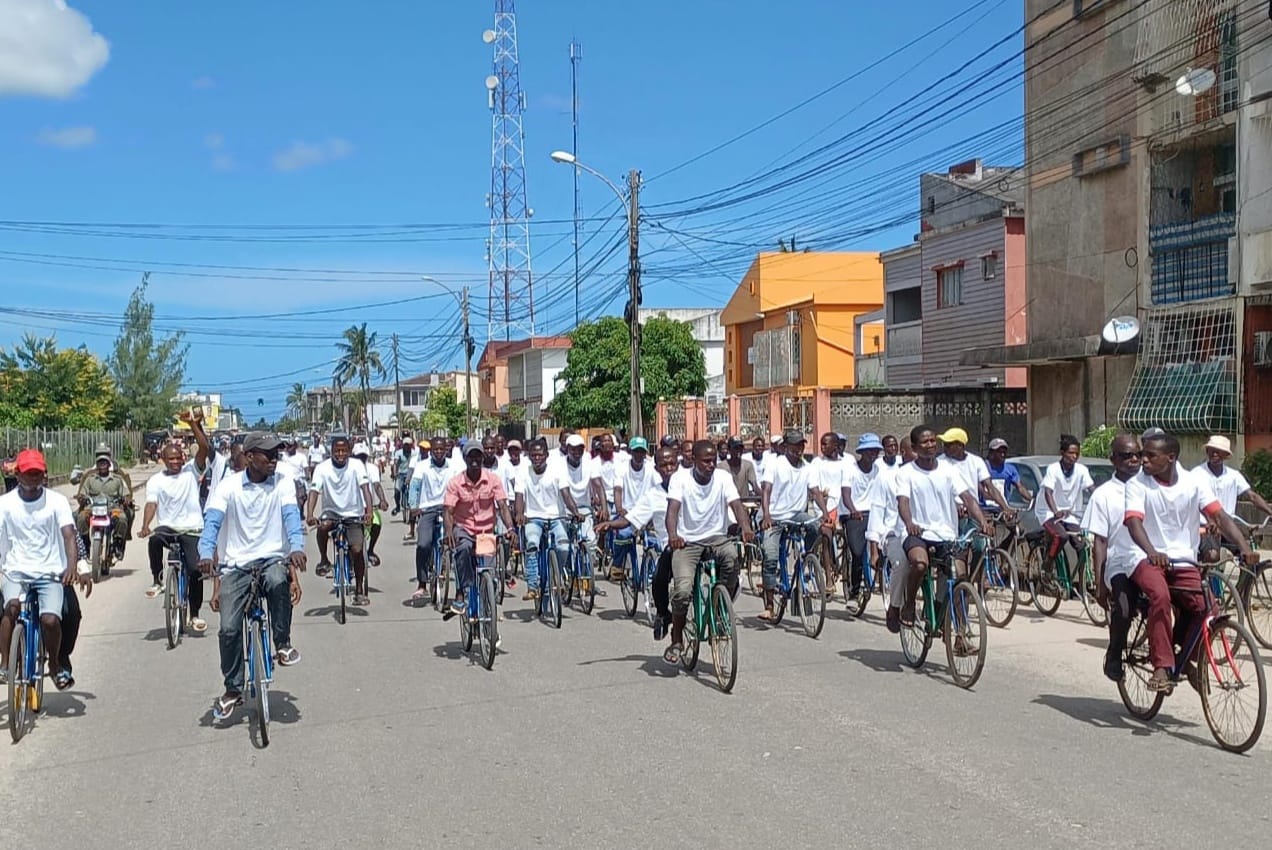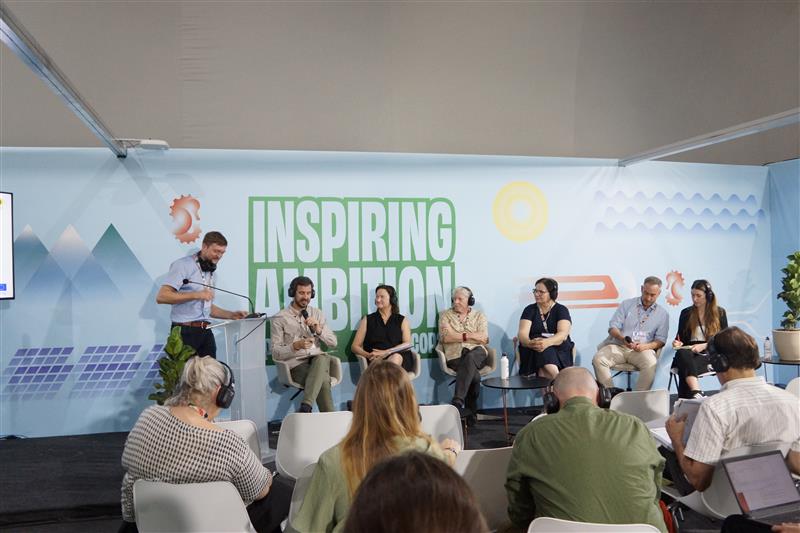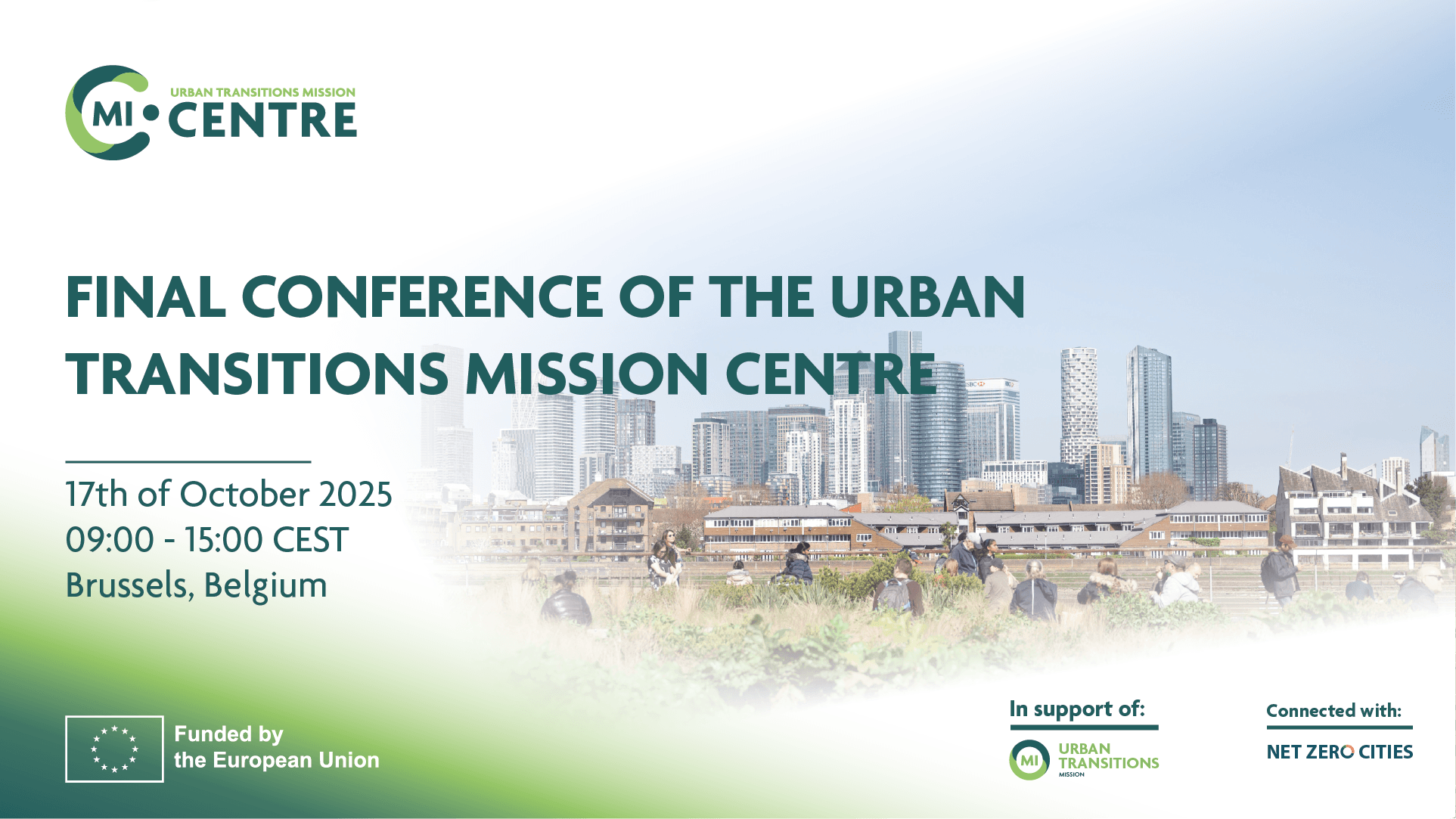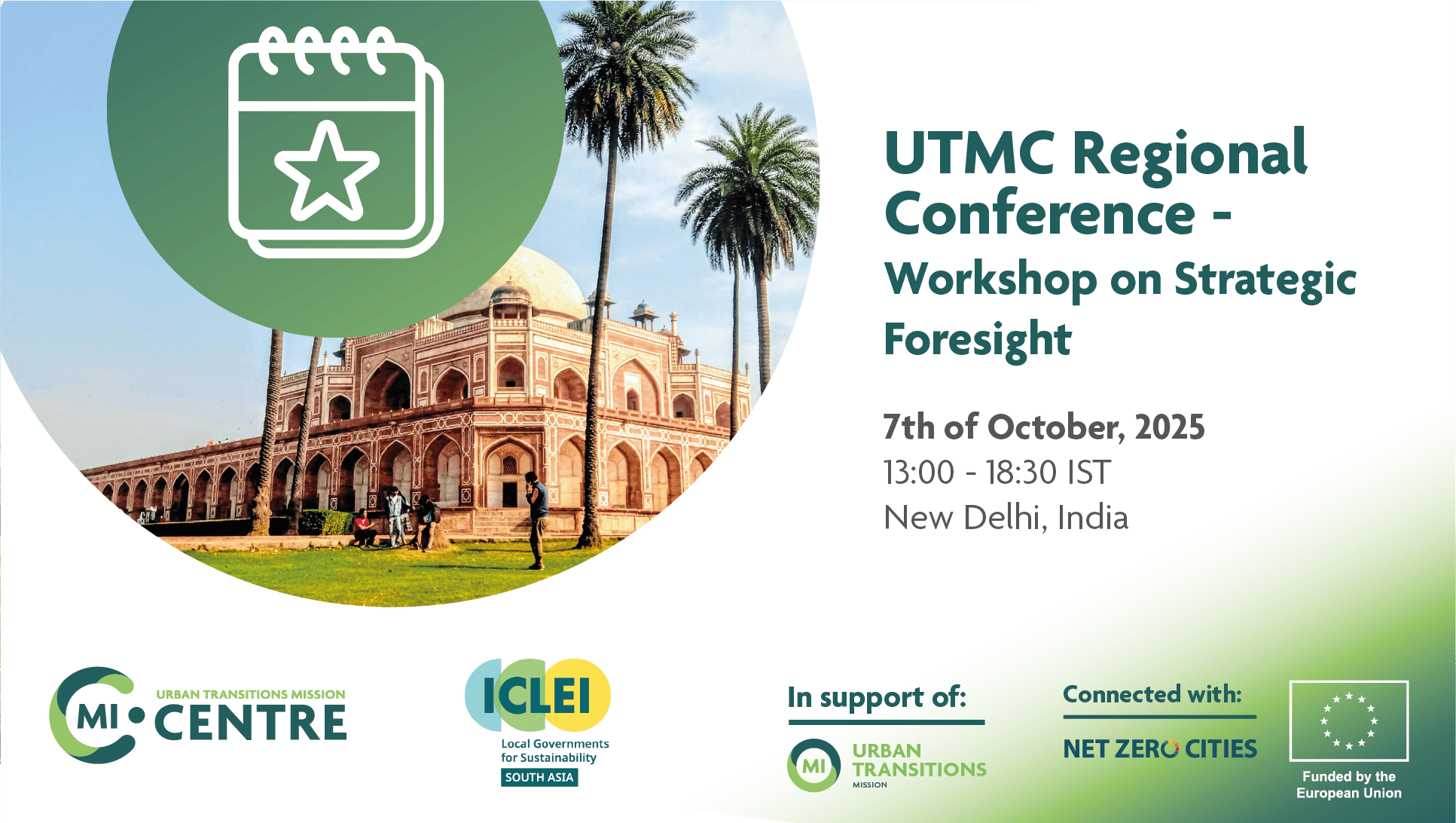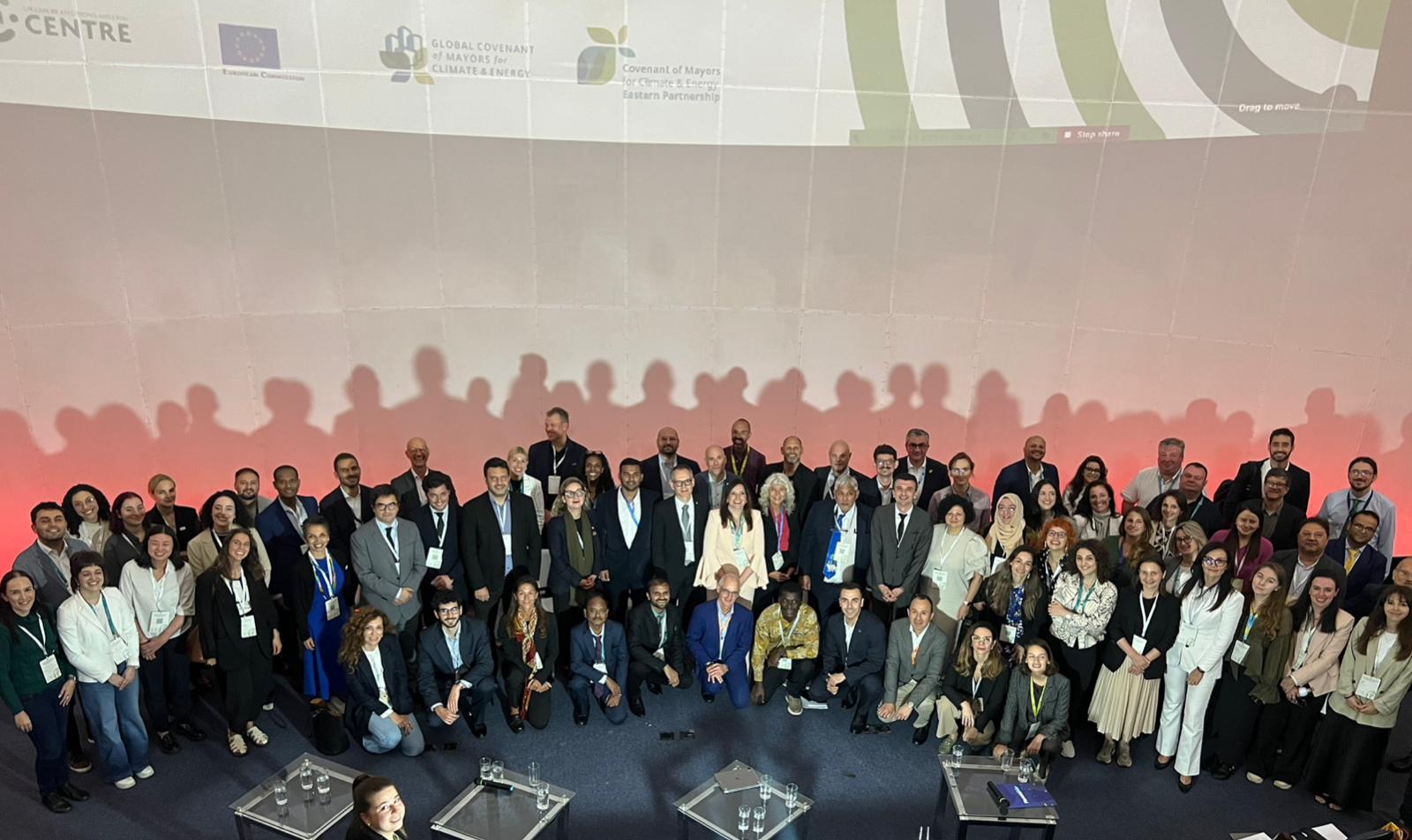Goyang City, South Korea – April 15, 2025 — Policymakers, city officials, researchers, and climate leaders from across East Asia gathered in Goyang for the regional event Cities of the Future: Energy & Digital Pathways to Climate Neutrality, organized by the Urban Transitions Mission Centre (UTMC). Held as a side event to the ICLEI’s World Local Government Climate Summit, and organised by ENoLL (European Network of Living Labs) and FFG (Austrian Research Promotion Agency), the event underscored the critical role that East Asian cities play in driving forward digital transformation and clean energy innovation in pursuit of net-zero, resilient, and inclusive urban futures.
Supporting Cities Through Collaboration, Tools, and Knowledge
Opening the event, Giorgia Rambelli, Director of the Urban Transitions Mission (UTM), emphasized the mission’s foundational principle: “We don’t ask for new reporting, we don’t ask for new plans, we don’t ask for new inventories. We want to use the journey that you have already started as the basis and focus to link you to the solutions that you need to make it happen”.
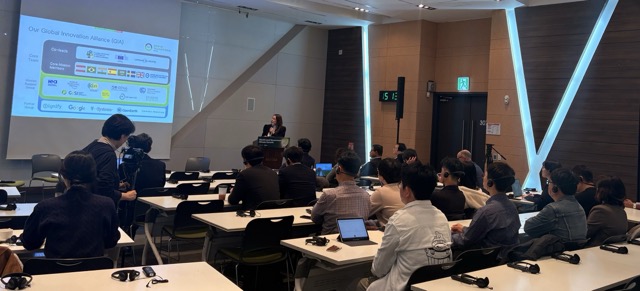
She described how UTM supports over 100 cities globally by building capacity and connecting local governments to implementation support, pilot opportunities, and a strong network of peers. Rambelli emphasized the importance of digital tools, data, and integration across sectors such as energy, transport, and buildings to drive systemic transformation.
Karel Van Oordt, Project Coordinator at Eurocities, who is co-leading the development of the UTMC platform, presented the online portal as a resource for learning, connection, and funding access. “The platform is all about how do we bring the community to it, how do we connect different stakeholders, and how we can accelerate those conversations that will accelerate the action as well”. He shared that nearly 900 users, including city staff, researchers, and private actors, are now using the platform to support their climate goals.
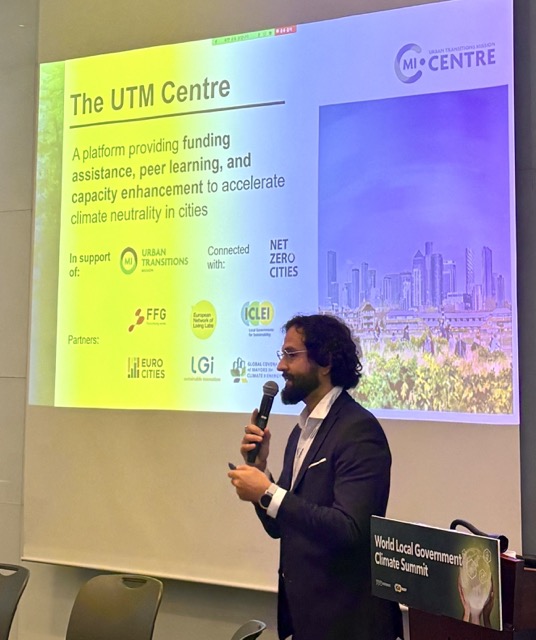
Voices from Cities: Digital and Energy Transitions in Practice
Moderated by Kanak Gokarn, Project Officer at ICLEI World Secretariat, speakers from South Korea and India shared examples of how digital technologies are transforming urban energy systems.
DongSoo Ahn, Director of SmartCity Division at Goyang City, highlighted that “tackling climate change is no longer an option, but a necessity. We need to act, recognising that we are all responsible.” He emphasized the city’s Green New Deal vision, aiming for energy independence through digital citizen engagement, renewable energy expansion, and smart grids.
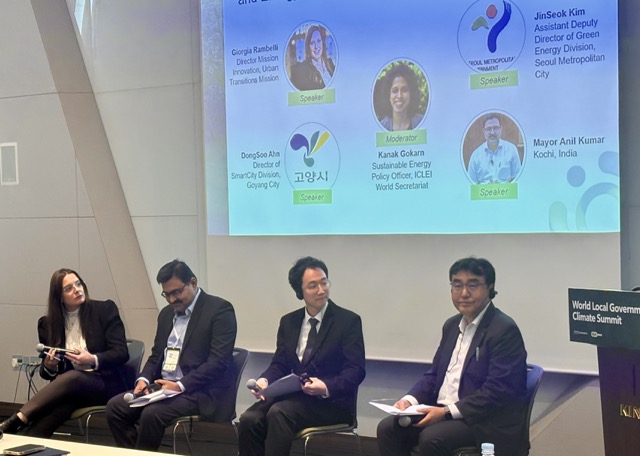
JinSeok Kim, Assistant Deputy Director of Seoul’s Green Energy Division, introduced the city’s Energy Information Integration System, a data-driven platform enabling smarter policy and citizen engagement. He explained how “citizen engagement platforms have enabled data-driven policy formulation, which has contributed to increasing policy credibility” and helped Seoul advance its solar power installations and eco-friendly transport systems.
Mayor Anil Kumar of Kochi, India, shared the city’s experience with decentralisation challenges, noting that electricity supply is managed by state governments. Nevertheless, he outlined how Kochi has launched digital platforms like the Integrated Command and Control Centre (IC4): “We are transforming all our meters into smart meters […] and these are being connected into the command and control system,” he explained. Mayor Kumar also detailed Kochi’s integrated public transport network, managed by a single agency: “We have the metro rail. Now added to the metro rail, we also have the water metro. We have integrated the bus, the water metro, the rail network. It’s being managed… by the Kochi Metro Rail Limited”. This multimodal system is being digitized to improve accessibility and efficiency for citizens, and forms part of the city’s local area planning to promote public transport hubs.
Further, Kochi is leading the charge on solar-powered infrastructure. “The metro has been fully fueled by solar systems […] and the entire boats are being run by solar-powered boats,” he noted, adding that the Kochi International Airport—also solar-powered—was a global first and a model for the city’s future development.
Financing the Transition and Scaling Innovation
The final session, moderated by Andy Deacon, Co-Managing Director of the Global Covenant of Mayors for Climate & Energy (GCoM), focused on unlocking finance and scaling innovation through digital tools, research partnerships, and international cooperation.
Nicholas Taylor of the Global Green Growth Institute (GGGI) stressed the importance of “embedded support” in cities to move beyond planning and into implementation. He emphasized that climate finance readiness is not only about access, but about equipping cities with technical capacity, governance tools, and cross-agency integration.
A highlight came from Ander Zozaya, who presented the Cooling Singapore 2.0 initiative from Singapore EHT Center. The project is developing a Digital Urban Climate Twin, a simulation model that maps urban heat conditions and helps design cooling interventions. “In Southeast Asia, where urban heat is rising, the ability to model and test interventions like green roofs or building material changes is a game-changer,” Zozaya noted, underscoring how the tool supports evidence-based urban planning and investment.
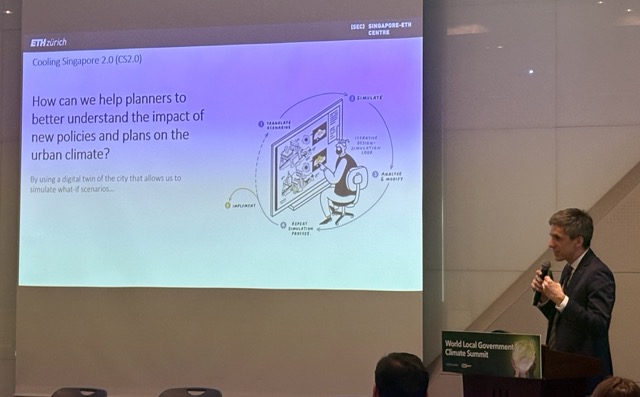
Dr. Daeyeon Cho, Senior Research Fellow at KAIA, showcased South Korea’s Smart City R&D Program, which includes zero-energy housing, modular building solutions, geothermal heating, and a blockchain-based energy sharing platform. With over $120 million in national funding, it is the largest smart city initiative in the country. Cities like Busan’s Eco Delta City and Sejong, Korea’s administrative capital, have been designated as pilot areas. “We checked and monitored the energy consumption and water consumption in these smart villages,” he said, noting the importance of testbeds for designing scalable solutions.
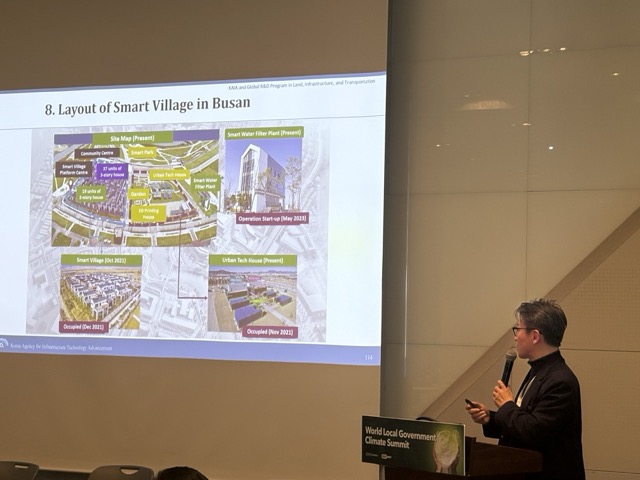
Jong Han Rhee, Policy Officer at the EU Delegation to Korea, emphasized the EU’s collaboration with Korea through the EU-Korea Green Partnership, a €4 million initiative running through 2028. “It’s a comprehensive approach to tackle climate, energy, and environment together,” he noted, highlighting city-to-city collaboration, youth engagement, and shared climate diplomacy goals.
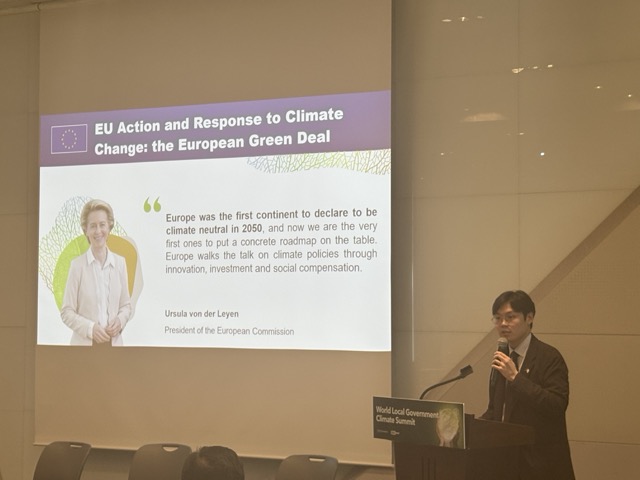
Deepti Mary Varghese, Councillor at Kochi Municipal Corporation, shared examples of local innovation underpinned by international support. Kochi has implemented real-time flood monitoring sensors, piloted waste-to-manure composting with a public park, and developed an open-source urban observatory. “These partnerships not only bring in financial resources, but also offer exposure to global best practices and replicable models suited to our local context,” she explained. Varghese stressed the urgent need for predictable funding mechanisms: “Scaling up models requires sustained and predictable funding […] The limited municipal budget makes it very difficult for the city to implement large-scale projects”.
She closed with a powerful acknowledgment: “Your leadership and vision are helping cities like Kochi to become models of inclusive, climate-smart, and forward-thinking urban development”.
A Collective Vision for Climate-Neutral Cities
In her closing remarks, Giorgia Rambelli synthesized the event’s key takeaways: “Digital solutions […] provide tools to integrate different sectors across the board and to make us not only more efficient, but also to really future-proof the integrated type of services that our communities require”.
She also emphasized that digitalisation builds trust and engagement: “There is nothing worse than waiting for a bus that never comes. But if you know the bus is coming in one minute, in two minutes, maybe you’re more comfortable leaving your car at home”.
From Seoul’s smart policy platforms to Kochi’s solar transit systems and Singapore’s heat-mapping simulations, the Goyang event made it clear: East Asian cities are not only ready for transformation—they are already leading it.
